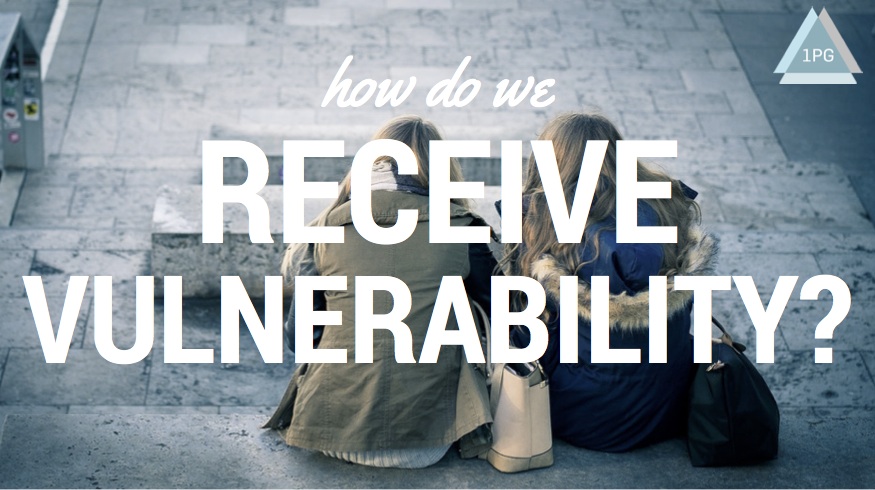How Do You Receive Vulnerability?
 “Is it really possible to tell someone else what one feels?”
“Is it really possible to tell someone else what one feels?”
-Leo Tolstoy
This week, a friend relayed to me some frustrations about being vulnerable. After sharing her thoughts and feelings authentically, she was caught off guard by the somewhat negative reaction of her peers.
This is the funny thing about vulnerability: it doesn’t always “work.” In fact, sometimes it can seem like it’s backfiring and causing more problems than good. I have written before about how true vulnerability does not look for a response - it is authenticity for the sake of being real, not eliciting support, cheerleading or condemnation. True vulnerability is okay when the response is glowing and positive. But it’s still really frustrating when it’s not.
I started to wonder how I, through various expectations, play into discouraging vulnerability.
I am more aware of how I can be vulnerable, but completely lack an awareness of the ways I do not receive another individual’s vulnerability. I operate under some pretty broad assumptions of people, both consciously and unconsciously. I assume you like me most of the time. I assume you are generally telling the truth. I can sometimes assume any conflict is either my fault or my responsibility to fix.
So what happens when you try to be vulnerable with me? All of these assumptions influence my reaction to you.
Your authentic feelings may have nothing to do with me but my assumptions bring a focus to myself that can leave me easily offended...moving toward solution...completely missing you in that moment.
If the encouragement to be vulnerable is to foster connection - then the same encouragement must be given as we receive another individual's vulnerability.
In the immediate aftermath of hearing someone share something that is real, I have to pump the brakes on moving toward solution. My immediate desire is to alleviate pain...figure out what I did to contribute to their feeling and atone for it...sometimes, unfortunately, it’s to add a little shame to what they shared in hopes that it makes them change. I want whatever authentic feeling they shared to have some kind of outcome. I want it to translate into a moment of movement and change. And while this is certainly one aspect of being vulnerable - we do begin a process of movement and growth - it is not the only purpose of it.
Focusing on Connection
The next time someone is being vulnerable with you take a moment to slow down. Listen to what is being said to you and focus on connection. This doesn’t mean agreement. It means connecting to the person behind what is being shared. Affirming someone in their experience or feelings is simply acknowledging that what they feel is what they feel. We cannot take that away from someone no matter how ridiculous or false the feeling may seem to us.
A friend approaches you and says the following: “I’m discouraged...I haven’t felt like myself lately and nobody really reaches out to me anymore...if I’m being really honest with you, I’ve thought a few times about how I would probably just be better off dead…”
The temptation is to move toward solution - let me show you where your feelings are incorrect and help you feel better. But can you sense how jarring that is in that moment? This friend has shared a very real and intense struggle from their heart and we suddenly think we have the permission to do open heart surgery. Instead, what this person is longing for is to not feel alone. To not feel isolated in their intense feelings (some of which might be feelings they don’t want to have themselves!) Connection looks like validating the difficulty of these feelings - exploring what it is like to have these feelings - and drawing close to the person sharing. Yes, the validity of these statements will need to be processed eventually and some of them will need to be challenged. But this cannot happen when someone still feels isolated and disconnected.
By shifting our focus in these moments, we can encourage the person sharing in a way that encourages further vulnerability. And as we all learn how to be vulnerable and receive vulnerability - we can begin the process of understanding and moving toward healthier emotions and actions.
How have your expectations inhibited someone being vulnerable with you?
